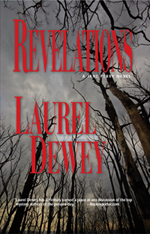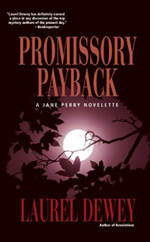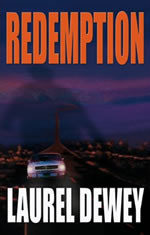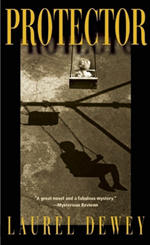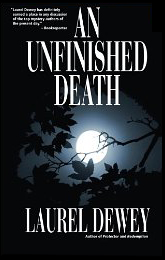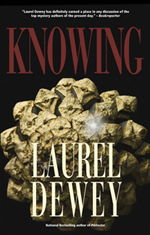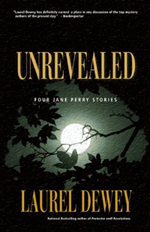
Hi, Laurel,
I’m a mother of two teenagers who has always had the writing “bug.” I’ve toyed with several ideas for books based on my own life experience and I’ve been blessed to have two of my short stories published in magazines. I’m inspired by your debut, PROTECTOR, and wanted to know how long it took you to write it and if you had any pointers for me. Now that my kids are older, I don’t think I have any excuse for not going for my goals.
Katherine, Milwaukee, WI
Dear Katherine,
Congratulations on your two published short stories. That’s a great start. There’s something about seeing your name in black and white that gives you the confidence to take the next step.
You say that your books on based on your own life experience. That’s a good place to start. Just make sure that your stories are something that you feel others will relate to or can learn from. “Life experience” can be mundane or intriguing. Let’s say you grew up in an Amish household. Okay. That’s interesting for a bit before it becomes tedious. But if grew up among the Amish and then left to forge your own life in the secular world and maybe entered into a role in society that went against the Amish beliefs (military, newscaster...stripper...you get the point), THEN your story gets really interesting. And “life experience” can also be simple. You said you have two teenagers. Well, the Queen of Family Humor, Erma Bombeck made a name for herself by talking about her home life. She was brilliant at taking a completely ordinary event such as bringing a new dog home and turning it into a hilarious and sometimes acerbic commentary on pets.
It took me 14 months to actually write PROTECTOR. That’s not counting the year or so of hands-on research I did to prepare for the process (crime research, interviewing cops, detectives, studying criminal psychology, etc.) In that 14 months, I wasn’t writing every single day. Being that this was my first novel, I was a tad daunted at the task and so I approached it too carefully. Instead of flinging myself into the pool of words and drama, I chose to dip my toe in a little at a time to check if the water was warm and safe. Once I got in the habit of churning out pages, and once I had written about 200 of them, the process was more prolific and everything sped up. As I crested the three-quarter point of PROTECTOR, I established a daily routine where I worked from 3:30pm until 2:30am, six days a week. During this time, I was freelance writing for several magazines and newspapers to make money, so my mornings were still filled with tapping on the keyboard. But it was important to create a specific time of day that was dedicated to JUST writing the book. Once I got in the habit, it was as if my body craved that time and looked forward to it.
So, my advice to you is to set aside two or more hours a day that you completely dedicate to your book. That time can be research time or story development in the beginning and then the actual writing once you are ready. I also suggest that you commit to a certain number of pages/words a day. This is how professionals attack a book, since they are looking at real life deadlines and editors who expect the delivery of pages by a certain date. I know that many professional writers churn out about 1,500 words a day. That may sound like a lot but I assure you that if you’re really into what you’re doing, 1,500 words comes quickly. (For example, my response to you so far is a fast 546 words!)
It’s always a good idea to start the next day’s writing by reviewing what you wrote the previous day. This gives you a creative springboard to launch into the next part of the story. The most important advice I can offer is to write from your heart. People will pick that energy up and, if the subject matter interests them, they’ll resonate with you because you are coming from a place of truth.
Dear Laurel,
Just finished reading your book and was intrigued by the “Riddle Desk” you mention in PROTECTOR. Do these desks really exist or did you make it up?
Jackson, Cincinnati, Ohio
Dear Jackson,
No. Made it up.
The “Riddle Desk” is not just a core “vehicle” in PROTECTOR for holding a valuable secret; it’s a metaphor for what Jane Perry is not seeing. Just as what appears to be a cubby hole in the desk is actually a painted, three-dimensional illusion, Jane must discern what is real or illusionary in her own life and within the confines of the criminal case she is trying to solve.
While it’s not mandatory, I typically like to throw parallel metaphors into my stories that support the main theme. Many times, readers may not recognize this but I think that just having it in the book creates more depth to the story.
Dear Laurel,
It seems that novels are getting shorter and shorter these days. I remember Michener’s tomes used to border on over a thousand pages. Now, if a book is 400 pages, it’s a huge deal. What’s up? Also, is it my imagination, or is the type getting bigger in books?
Carl, Spokane, WA
Dear Carl,
Yes, novels are getting shorter. There’s the rarity out there that is still lengthy, but most hardback fiction is coming in between 300 and 400 typeset pages. I don’t have the definitive answer but I have my own opinion on why this has happened.
First, there’s the nasty bottom line aspect of publishing: The cost of paper. The cost of distribution. Money. Doesn’t it always come down to money? Paper costs have gone up as much as six or times in the last 10 years. Thus, it’s cheaper to print a book with less pages. When I delivered PROTECTOR’S first draft at a whopping 650 manuscript pages, I was told unequivocally to cut at least 200 pages out of it. Publishers are more interested in word count and 125,000 words seems to be the current acceptable word count bandied about by publishers. (PROTECTOR’S final word count was around 150,000.)
Second, there’s the belief in many publishing circles that readers are quickly getting lazy. We’ve all been programmed to chew our stories in quick bites, rather than savor them. Every news outlet from People Magazine to USA Today, seems to be publishing stories that are shorter and shorter. (There was the old joke that People Magazine’s articles should only take as long to read as it took to sit on a toilet and “digest” the story...) Thanks to the TV soundbite, Internet blog items and the advent of the 30 or 60-second commercial mentality, many publishers believe the average person’s attention span is waning. Thus, if they have a choice between a book that is long versus a hundred or so pages shorter, they are more inclined to buy it. Once again, there’s your bottom line. Money. If we continue with this trend, I worry that novels will hover around 200 or less pages and have lots of pictures to keep the reader involved.
Oh, and yes, the fonts/type are getting bigger in some hardcover books. I think it’s used to stretch out a writer’s inability to write a longer story or because we’re all going blind and getting tension headaches from staring at our computers.
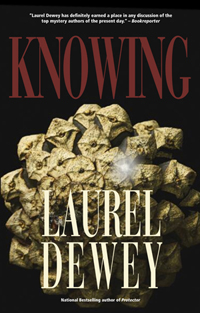
Knowing
Read The Interview!
Read The First Two Chapters!
Order Now:
Quotes from "Protector"
“Sometimes, boss, we have to keep hurting ourselves just to make sure we’re still alive.”
-Jane Perry
“I’m wearing Eddie Bauer pants! That doesn't make me his cousin!”
-Jane Perry
“Jane, you've been waking up in someone else’s nightmare for a long time.”
-Sergeant Morgan Weyler
“When I grow up, I don't want to be what I want to be. I want to be who I am.”
- Emily Lawrence
"Did you ever have an experience that gave you a chill and then wonder if you were just standing in a draft?"
-Tony Mooney
"There’s a thin line, my friends, between genius and insanity"
-Tony Mooney
“What really is freedom? They write anthems to it in notes no one can sing... So where does freedom really live? Does it lie outside ourselves or is it born from within? The reality, my friends, is that most do not taste freedom until the moment of death. But it is the fortunate who can savor the sweetness of true freedom while living... Are you free? Or are you waiting for death to give you wings?”
-Tony Mooney





